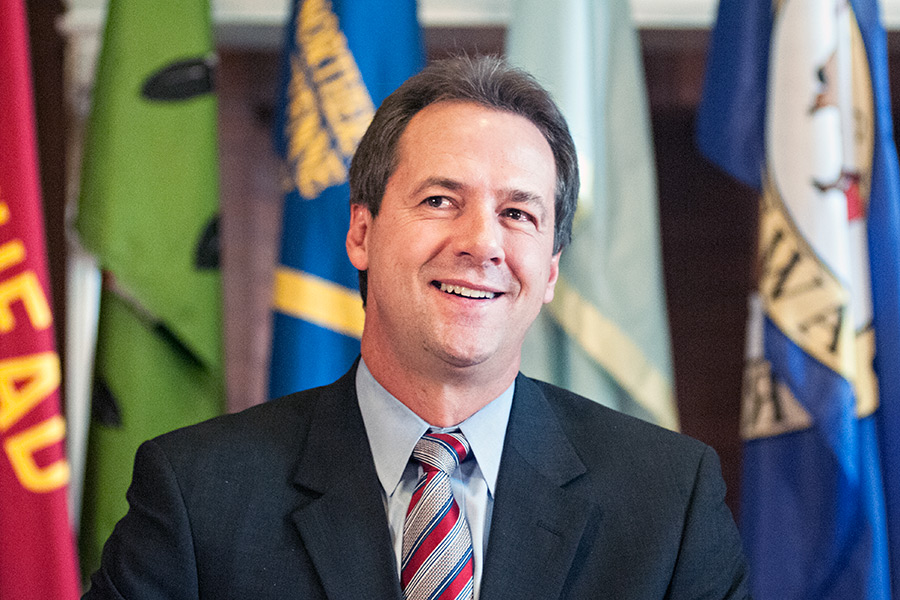HELENA — Montana will become the 30th state to expand its Medicaid program after federal health officials on Monday approved provisions that include requiring beneficiaries to pay premiums that amount to 2 percent of their income.
Gov. Steve Bullock announced the Centers for Medicare and Medicaid Services’ approval of the federal waiver needed for state officials to start enrollment immediately and begin coverage on Jan. 1.
“I am pleased to stand before you today to say that for over 70,000 Montanans, the wait is finally over,” Bullock told a large crowd of supporters in the Capitol.
The Democratic governor said gaining federal approval of the Montana plan was difficult after the nearly three-year fight to pass the compromise legislation. “This is a victory that at times seemed uncertain, but never seemed unnecessary,” he said.
The governor’s office has estimated that 70,000 people or more would be eligible for coverage under the expansion, but legislative fiscal analysts predicted about 45,700 would actually participate over the next four years.
Medicaid expansion was a key part of President Barack Obama’s health care reform law, but a U.S. Supreme Court ruling in 2012 made it optional for states.
So far, 29 other states and the District of Columbia have expanded their programs. Six of those states received federal waivers allowing them flexibility in designing their programs.
Obama administration officials encouraged other states to follow.
“Montana has chosen to put people over politics, and we hope that the remaining states will join Montana and the other 29 states that have designed programs to meet the needs of their residents who need health care,” White House press secretary Josh Earnest said in a statement.
The aim is to expand eligibility to residents with incomes at or below 138 percent of the federal poverty level, about $16,000 per year for an individual and $33,000 for a family of four.
The state Legislature rejected a Medicaid expansion bill in 2013 and a proposed voter initiative failed to qualify for the 2014 election ballot. Bullock’s plan was rejected again in this year’s legislative session, but this time was replaced by a compromise bill sponsored by Sen. Ed Buttrey, R-Great Falls.
Lawmakers passed that measure, but the state needed a waiver by the federal government because of the changes, such as charging premiums and outsourcing the program’s administration to a third party.
The state has named Blue Cross and Blue Shield of Montana, the state’s largest insurer, as the administrator of the expansion program.
The plan also requires patients to make the maximum copayments allowed under federal law, though copayments and premium payments combined can’t exceed 5 percent of a family’s household income.
Those provisions were included to make sure the new Medicaid beneficiaries understand the value of their insurance coverage, take personal responsibility and make wise purchases, according to state officials.
People with incomes above the poverty line who don’t pay their premiums will be kicked out of the program. Those who make less than the poverty line won’t be disenrolled if they don’t pay, but those non-payments become a debt to the state that can be collected later, Bullock health policy adviser Tara Veazey said.
Some people, including Native American reservation populations and the medically frail, will be exempt from the requirements, Veazey said.
Buttrey called the plan non-partisan, innovative policy meant to help the economy.
“Can you believe that? A health care solution focusing on jobs, economic development, personal responsibility, keeping Montanans’ money in Montana and, most importantly, the ongoing health and prosperity of our citizens,” Buttrey said.
Federal officials expressed concern about the third-party program administrator — the first of its kind in a state expanding Medicaid — and whether the cost-sharing provisions would create hardship for poor families, Bullock said.
The program will be reviewed annually by federal health officials.
Holly Blouch, a Kalispell woman who works about 25 hours a week at a fast-food restaurant because of a disease that caused her kidney to fail, said she will now be able to have the surgery she needs to go on dialysis and possibly get on the list for a kidney transplant.
“I can finally stop worrying and start focusing on getting well,” she said.
